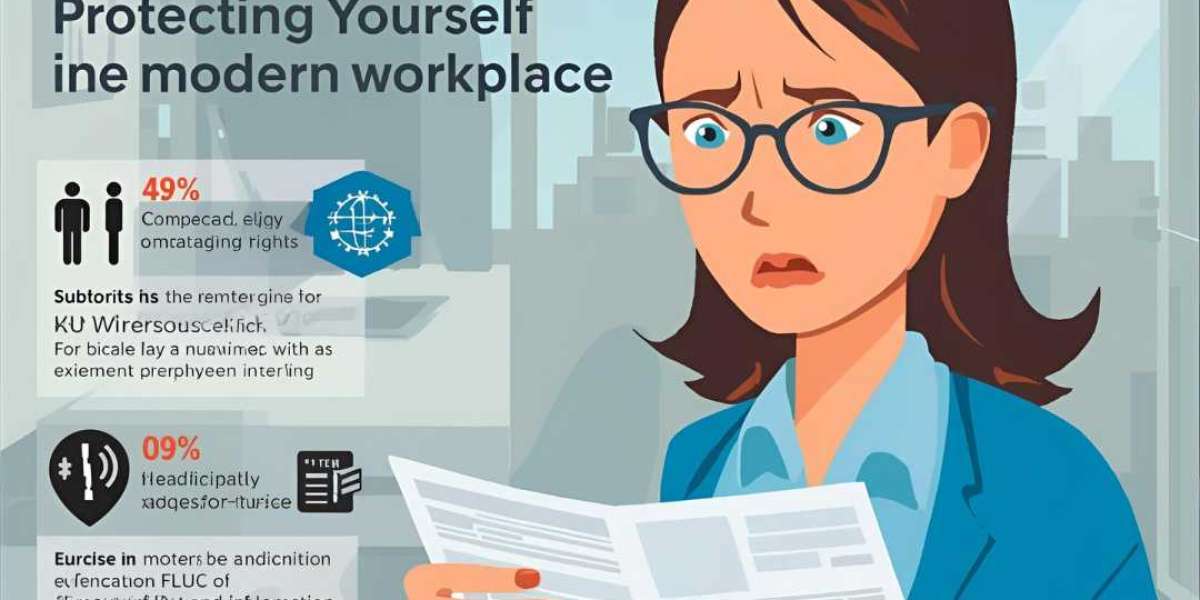In today's rapidly changing economy, understanding worker rights is more essential than ever. From fair pay and safe working conditions to protection from discrimination, these rights ensure every employee is treated with respect and dignity. Sadly, many workers are unaware of what the law guarantees — leaving them vulnerable to unfair treatment.
Employment law exists to balance the relationship between employers and employees. By knowing your worker rights, you can confidently challenge mistreatment, request fair working conditions, and seek legal help when necessary. Informed workers are empowered, and knowledge is often the best defence against exploitation.
- The Right to Fair Pay
One of the most fundamental worker rights is the right to receive fair pay. This includes paying at least the national minimum or living wage, depending on age and employment status. Workers must also be compensated correctly for overtime, bonuses, and holiday pay.
Pay transparency is becoming an increasingly important issue in the modern workplace. Employers are legally required to provide payslips that clearly show hours worked, deductions, and overall pay. If you suspect underpayment or wage theft, seeking employment law advice can help you recover your debts.
- The Right to Safe and Healthy Working Conditions
Every employee has the right to work in an environment that is safe and free from unnecessary risk. Under UK law, employers are legally obliged to assess hazards, provide safety training, and take measures to prevent workplace accidents and illnesses.
This protection covers all workers — whether you're in an office, warehouse, or construction site. You can report it without fear of retaliation if you're injured at work or exposed to unsafe conditions. Protecting worker rights ensures everyone can perform their job without compromising their health.
- The Right to Be Free from Discrimination
Under the Equality Act 2010, workplace discrimination is strictly prohibited. Worker rights include being treated equally regardless of age, gender, race, disability, religion, or sexual orientation. Employers must take reasonable steps to prevent and address discrimination or harassment.
If you experience unfair treatment or bias, document what happened and seek professional legal advice immediately. No employee should feel unsafe, undervalued, or excluded because of who they are. Standing up for your workers' rights helps create a fairer, more respectful workplace for everyone.
- The Right to Fair Dismissal and Redundancy
Losing a job can be stressful — but worker rights protect employees from being dismissed unfairly or without proper procedure. Employers must have a valid reason for termination and follow the correct disciplinary or redundancy process.
You may have grounds to challenge the decision if you've been dismissed without a fair reason or your redundancy seems suspicious. Legal support can help you negotiate compensation, reinstatement, or a settlement. Understanding your workers' rights ensures that your employer remains accountable for their actions.
- The Right to Flexible and Family-Friendly Working
Modern workplaces are evolving, and with that comes the recognition of worker rights surrounding flexible work arrangements and family responsibilities. Employees who have worked continuously for 26 weeks or more can request flexible working hours.
In addition, maternity, paternity, and parental leave rights protect workers when growing their families. Employers must not discriminate against workers for taking leave or requesting flexibility. Upholding these worker rights encourages better work-life balance and supports a healthier, more inclusive workforce.
Conclusion
Understanding workers' rights is the first step toward building a fair and respectful workplace. These laws exist to protect you from exploitation, unfair dismissal, and unsafe conditions. Never hesitate to seek professional legal support when dealing with wage disputes, discrimination, or redundancy.
If you believe your rights have been violated or simply want expert advice on workplace matters, contact Arlingsworth Solicitors. Their team of employment law specialists can help you navigate complex workplace issues and ensure your worker rights are protected every step of the way.
FAQs
- What are the most critical worker rights in the UK?
The main worker rights include fair pay, safe working conditions, protection from discrimination, fair dismissal processes, and the right to flexible working and family leave.
- Can I be dismissed without notice?
In most cases, no. You're entitled to notice or pay in lieu, except in cases of gross misconduct. If dismissed unfairly, you can seek legal help to challenge the decision.
- What should I do if I'm discriminated against at work?
Keep detailed records of incidents, report the issue to your employer or HR, and seek professional employment law advice. Discrimination is illegal and should be addressed promptly.
- How can I ensure I'm being paid fairly?
Check your contract, payslips, and national minimum wage rates. If you believe you're being underpaid, you can raise the issue internally or seek legal assistance to claim unpaid wages.
- Can I request flexible working hours?
Yes. Employees who have worked for their employer for at least 26 weeks have the legal right to request flexible working arrangements. Your employer must handle your request reasonably and fairly.








